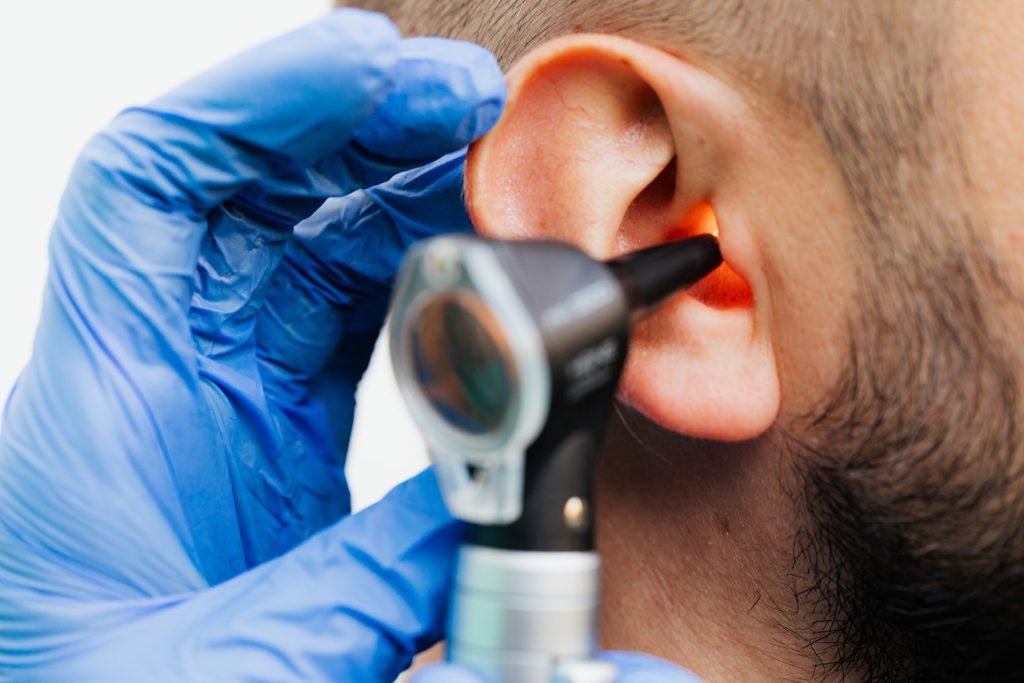Tinnitus: What it is, what causes it, and how to treat it
There is a seemingly never ending list of hearing problems experienced across the world, but one of the most common by far is a condition called tinnitus. Today we are going to look at what causes the condition, how to recognise it and most importantly how to treat it.
While we can offer some online advice on how to spot hearing conditions like tinnitus, the best way to gain an understanding of your hearing is to book an appointment with a professional audiologist, who will be able to carry out a full hearing test and offer you jargon free advice on the best hearing care plan for you.
What is tinnitus?
Tinnitus is one of the most familiar hearing complaints to the general public, but most people don’t fully understand what it actually is.
In most cases tinnitus presents a phantom ringing sound in the ears that no one else can hear, that is actually caused by an underlying condition. But what actually is tinnitus? A study conducted by the Georgetown University Medical Centre found that the ringing phenomenon is actually the result of the brain trying and failing to repair itself after some form of damaging auditory stimulus.
In practical terms this makes sense as after experiencing loud noises for an extended period of time (e.g attending a music concert) it is common to experience ringing ears for a short while afterwards, as the ears repair themselves. Where tinnitus differs is when we expose ourselves to damaging sounds that are too much for the ears to handle, meaning the “healing” ringing never goes away.

How to recognise tinnitus
Having a ringing in your ears may not always mean you have developed a permanent form of tinnitus as it may only be temporary, but if the sensation doesn’t go away after a matter of hours or even a couple of days then it’s time to see an audiologist for a hearing test.
It’s not just ringing sounds that can be caused by tinnitus however. Joining in the potential symphony of annoying sounds your brain may also decide to play you a buzzing, roaring, humming or even clicking sound on repeat, that only you can hear. In some rarer cases of pulsatile tinnitus you may be experiencing a pulsing sound in the ears pounding away in time with your heartbeat.
The one thing all these sounds have in common however is that they are sounds only you can hear. This is due to the fact that they are all the result of rogue signals in the brain, and not an outside stimulus. This means that the universal first step to identifying tinnitus is to ask the person standing next to you “can you hear that really annoying ringing sound?”.
If you think that you may be suffering from tinnitus then the definitive way to find out is to speak to a professional, who can use a battery of modern hearing tests to determine the cause of your discomfort. This is an important step to carry out as the condition may be being caused by a temporary ailment, which can be rectified easily thus curing or lessening your tinnitus symptoms.
Even the simplest of conditions like a build up of earwax can lead to tinnitus, and this can be quickly and easily rectified by a round of ear wax microsuction, in as little as 30 minutes!
How is tinnitus treated?

There are a multitude of ways to treat, or in some cases cure tinnitus, and these largely depend on the underlying cause. Unfortunately the most common cause of tinnitus is age related hearing loss, which explains why the condition can affect up to 20% of people. In this case there is little that can be done to cure the condition, but there are plenty of options to manage it and lessen its impact on your day to day life.
In these cases there are a range of holistic treatments that have proven to lessen the noticeable effects of tinnitus. These include sound therapy – listening to neutral sounds or “white noise” that drown out the ringing without themselves becoming overpowering. An example of this would be having quiet, relaxing music on in the background or through headphones, or even the cliche but effective whale songs and ocean sounds. While this method will do nothing to actually lessen the condition itself, it can give you relief from the incessant ringing sounds.
There are also behavioural therapy options available for those with mild to severe symptoms that retrain how the brain processes the sound (tinnitus retraining therapy), and teach you to reconsider how you think about your tinnitus helping it to become less noticeable (cognitive behavioural therapy).
Prevention over reaction
By far the best way to treat tinnitus is to lower your risk of developing it in the first place. As with all ailments and conditions we always advise prevention over treatment as this methodology takes much less effort on your part, and crucially is free.
While age related hearing loss is a sword of damocles that hangs over us all, tricking your body into thinking it’s younger than its years is an excellent way to prolong your hearing health. This means looking after your body, most importantly your cardiovascular health. The best way to do this is to live a healthy lifestyle and make sure you get plenty of exercise. Staying in good physical health will not only reduce your risks of developing hearing problems but also will lower the likelihood of concerns with the heart, joints and every other component of the human body.

For tinnitus caused by occupational hazards like noisy workplaces or hobbies, making sure that your hearing is properly protected throughout your career will go a long way to preventing chronic hearing problems and by extension, tinnitus. Ensuring the volume isn’t too high, that hearing protection is worn when needed and regular breaks are taken from noisy activities are all simple actions you can take in your day to day life that will pay dividends in the long run.

Finally, making sure that you are constantly aware of your hearing health will help you to recognise when things are taking a downturn, and allow you to take extra measures to protect your hearing as soon as possible. Making regular hearing check ups as much a part of your regimen as visiting the dentist and getting your eyes checked out is an important step towards delaying or eliminating the threat of tinnitus.
Start your journey to better hearing
If you are concerned about your hearing health then it’s time for you to book your first hearing consultation with Nathan Gluck Hearing Care North London audiologists. Our family owned, independent clinics put the patient experience above everything else, keeping our Golders Green clinic open 6 days a week, and usually until 8pm!
If you would like to book a friendly, jargon free and simple to understand hearing assessment with us just click here and fill out our booking form today!
Get in touch
If you’re concerned you may have a problem with your hearing, or you’d like to arrange a hearing test for a family member, we’re here to help.
Nathan Gluck Hearing Care,
20 Wentworth Road,
Golders Green, London,
NW11 0RP, UK